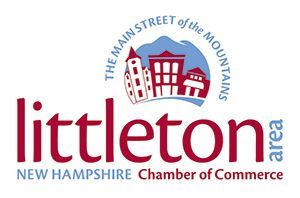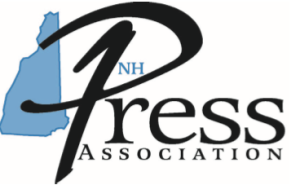
Becky Fuda, Deer Project Leader at the NH Fish and Game, said, “New Hampshire’s 11–day muzzleloader season is favored by hunters because of its early timing, milder weather, and the high level of buck activity that happens leading up to the peak of the deer breeding period in mid to late November. Many hunters also view the muzzleloader season as a way to scout the woods and get in shape for the approaching firearms season.”
In New Hampshire, muzzleloader hunters are given 11 days prior to the opening day of the regular firearms season to hunt deer. Hunters must obtain a regular hunting license and a muzzleloader license.
Hunters are reminded that online deer registration will be unavailable on the first two days of muzzleloader season, November 1 and 2, and the first three days of firearms season, November 12, 13, and 14. Hunters must check in their deer in person on these dates. For a full list and map of deer registration stations in the Granite State, visit www.wildlife.nh.gov/hunting-nh/check-stations-registration.
This Is Bat Week
I never heard of Bat Week until last week when I received a press release from Vermont Fish and Wildlife. I am fond of bats and wish there were more around our property as they are voracious eaters of insects including the mosquitoes and black flies we all despise.
Evenings when we sit by the fire at our little pond we used to see bats swooping across the water snatching insects. Unfortunately, it has been several years since we have seen any despite the erection of a bat house on a pole high above the edge of the pond.
The onset of fall sends Vermont’s bats into motion, which makes it an important time for conservation-minded Vermonters to learn about, and help conserve, the state’s nine native bat species.
If you have noticed bats roosting in your attic or barn over the summer, fall is the perfect time to safely evict these uninvited guests as they do not have vulnerable young at this time.
You can learn how to safely evict bats from your building at the Vermont Fish and Wildlife Department’s best management practices page.
You can also help bat conservation efforts by reporting large colonies of bats living in structures to the department’s website. Locations with rare colonies of endangered little brown bats are eligible for free bat houses from Vermont Fish and Wildlife. Through this successful program, 135 free bat houses have been placed since 2014, with over half already occupied by over 1500 endangered bats.
Bat houses provide an alternative location for safely evicted bats to remain in your yard and continue eating huge quantities of insects that may be forest, agricultural or human pests.
“Fall also means Halloween, and scary images of bats, but this presents an opportunity to bring positive attention to bats as well,” said Vermont Fish and Wildlife Small Mammals Biologist Alyssa Bennett. “We celebrate ‘Bat Week’ in the days leading up to Halloween.” Bat Week takes place October 24-31 and aims to raise awareness about the vital ecological functions of bats and to dispel the many myths and misinformation about them.
Anyone interested in learning more can visit the official Bat Week website at www.BatWeek.org, or email Alyssa.Bennett@vermont.gov for more information about what they can do right here in Vermont to promote bat conservation.
Connecticut River Paddlers Trail Campsites Rely On Volunteers
I have often written about the campsites that are so popular among those who enjoy the Connecticut River Paddlers Trail. They are available to those canoeing our great river thanks to the generosity of private and public landowners and the efforts of volunteers who maintain them.
Bradford resident Ted Unkles maintains three sites, Howard Island North and South behind the Grafton County Complex and Vaughn Meadows in South Newbury.
Like most of the caretakers, he opens the sites in the spring, visits at least monthly in June and July to cut the fast growing vegetation to keep the tent sites and paths open. That rapid growth of vegetation slows down by mid summer so August and September take less work.
It is this time of year that the sites need to be closed down in preparation for winter and spring flooding. I joined Ted in that effort last week.
We first moved the picnic tables and secured them to trees so they would not be washed away by flooding. Next any trash was picked up and the fire pits cleaned. The only unpleasant job was the moving of the privies. That required digging of new holes and the filling in of the old holes after the privies were relocated.
My disappointment was the amount of trash left at the Howard Island South site which consisted of beer cans, food tins and aluminum foil in the fire pit and a ruined lawn chair left at the Vaughn meadows site.
If the campers can carry the items in, they can carry them out to ensure that the campsites will continue to be available.
Bits and Pieces
Making the most of the meals provided by deer taken in hunting seasons starts with processing them quickly and correctly which is why the Vermont Fish and Wildlife Department has three online videos demonstrating how to process deer. Finding the videos is easy on the Fish and Wildlife website, www.vtfishandwildlife.com. Click on “Hunt” and then “White-tailed Deer” and “Processing Your Deer.”
The educational videos are titled Field Dressing a Deer, Skinning a Deer and Butchering a Deer.
“Correctly processing game can make a big difference in the taste of the meat,” said Hunter Education Program Coordinator Nicole Meier with the department. “Taking the time to do it correctly assures that you and your family will have many enjoyable meals ahead.”
***
To better plan your next outdoor adventure in Maine, download the ME Outdoors app. It is available on the Apple App Store and Google Play. Search “ME Outdoors.”
***
Mark Breen reports in the Fairbanks Museum's Skywatch Almanac that on October 31,1925: “Halloween marked the coldest October weather on record; it was a shocking 4 degrees in Pittsburg, NH, and a tomb-like 2 degrees in Garfield (Hyde Park), VT.”
Mark also supplied the October Records and Averages
Warmest: 56.1°F in 2017 Coldest: 39.1°F in 1925
Wettest: 8.60 inches in 2005 Driest: 0.29 inches in 1924
Parting Shots
I recently read Of Place, Family, & My Cousin Gordy by Paul Lefebvre.
On my way through Lyndonville one day, I stopped at Green Mountain Books as I often do. Owner Kim Crady-Smith showed me the book and suggested I might enjoy it.
It brought back many memories to me as it is mostly about Island Pond and the surrounding area much of which is now part of the Conte National Wildlife Refuge or the West Mountain Wildlife Management Area. It is a part of Vermont I have been spending time in since my youth in the early 50s when my Dad would take me to camps along the Black Branch, Ferdinand Bog and South America Pond.
Lefebvre says his book, “contains three separate stories that have nothing in common except all are set in the same place in Vermont-the northern tier of the Northeast Kingdom or what I am calling the Upper Kingdom.”
The first section is about a family that moved from Quebec to Newark in the area of Center Pond where they started a sawmill and a school in the late 1800s.
The second section is a collection of essays Lefebvre wrote that were originally published in the Barton Chronicle.
The third section, which I found most interesting, is a first person account of and history of Island Pond, the once booming railroad town in which Lefebvre and his cousin Gordy grew up.
***
Sunday, October 19, a little after 6 p.m. New Hampshire Fish & Game received a call for a hiker who was unprepared and requesting help near the summit of Little Haystack in Lincoln.
At 8:14 p.m. a Conservation Officer located Jayson Choy 23, of East Hampstead, NH just below the summit of Little Haystack on the Falling Waters Trail. Choy was given food, water and a light then assisted down the trail to the parking lot arriving at approximately 9:50 p.m.
According to the press release from F&G, “Choy explained he had not planned on a long hike and was not prepared to be out as long as he was. Choy was otherwise uninjured and cleared the trailhead after the rescue. Choy will be charged for the cost of the rescue.”
He should be billed as should others who so flagrantly ignore their own responsibility to be prepared.
Syndicated columnist Gary W. Moore may be reached by e-mail at gwmoore1946@icloud.com or at Box 454, Bradford, VT 05033.
copyright 2025 Gary W. Moore
Have a story?
Let's hear it!
(802) 757-2773
(603) 787-2444
news@thebridgeweekly.com





